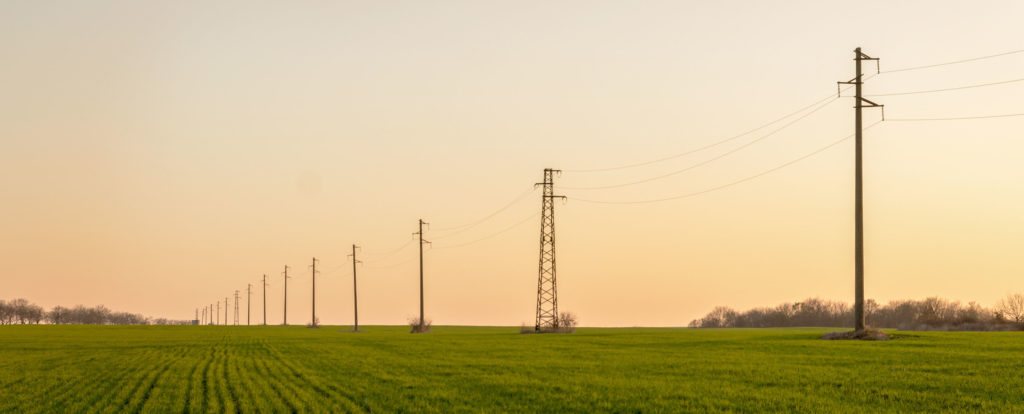Broadband infrastructure has received much attention in the wake of the American Rescue Plan Act of 2021.
Within the Act, the US Treasury established the Capital Projects Fund, which allocated $10 billion to respond to public health emergency from the Covid 19 pandemic. The funding was focused on projects that enable work, education and health monitoring, for communities in need.
The Treasury established strict criteria for the types of projects eligible to receive funding. Namely, the qualifications concerned projects that impact those three main walks of community life: work, education, and health monitoring. The need for reliable fiber-optic infrastructure was a core tenet of the Treasury’s strategy, given its ability to support future needs and straddle all three aspects.

Let’s examine how broadband infrastructure fits these criteria and what other types of projects are eligible for a piece of the pie:
Related Content – Let’s Get Busy Building New Fiber Networks: US Treasury Issues Guidance for Broadband Infrastructure.
Eligible Projects
In addition to touching on work, education and health monitoring, the Treasury will prioritize projects “designed to address a critical need of the community to be served by it.” The guidance emphasized the importance of deploying projects in historically disadvantaged communities.
These projects were grouped into three main categories:
Broadband Infrastructure Projects
The Treasury identified the “construction and deployment” of broadband projects as eligible for funding “if the infrastructure is designed to deliver, upon project completion, service that reliably meets or exceeds symmetrical download and upload speeds of 100 Mbps.” The guidance stipulated different speed guidelines if such speeds were deemed unrealistic due to environmental factors. Emphasis was placed on fiber optic infrastructure, as “such advanced technology better supports future needs.”
Digital Connectivity Technology Projects
These projects were defined as the “purchase and/or installation of devices and equipment to facilitate broadband internet access”, specifically in areas where “affordability has been identified by the Recipient as a barrier to broadband adoption and use.” The guidance highlighted laptops, tablets, and personal computers to be made available in public facilities or as part of loan programs. Public wi-fi infrastructure equipment was also mentioned.
Multi-Purpose Community Facility Projects
Construction or improvement of “ buildings that are designed to jointly and directly enable work, education, and health monitoring” was also covered. Examples include community schools and health centers, as well as improved internet access in libraries.’

The Treasury also explicitly stated which types of projects are not eligible for funding. Infrastructure projects, “such as highways, bridges, transit systems and ports” were deemed ineligible, and “general construction and improvements of hospitals and traditional schools” are not eligible, unless they meet specific criteria on a case-by-case basis.
The Significance of Broadband Infrastructure
There is a clear intent in the guidance to bridge the digital gap for underserved communities by leveraging the internet to increase opportunities for work, education, and health monitoring. The Capital Projects Fund will specifically provide funds for devices and equipment that spur broadband access and increased connectivity for those communities without access to high-quality internet.
Any entity that can help extend fiber-optic access for these communities would be eligible for these projects. In addition to state and local governments, the guidance nominated subrecipients such as co-operatives, electric utilities, and other broadband network providers (which may include ISPs).

Meeting the Criteria: Work, Education, Health Monitoring
Whereas projects like hospitals or schools need specific approval in order to be eligible, broadband infrastructure projects passed the Treasury’s criteria with flying colors, for each of the three major boxes:
Work
The Treasury saw broadband as a way to help community members search for, find, and receive training for new employment opportunities. Internet job boards, online workforce training, and career counseling programs are all enabled by a strong internet connection.
Education
Academics, extracurricular activities, and social-emotional or professional development programs fell under the education umbrella, according to the guidance. Remote learning which of course requires internet connection, is likely to remain part of the equation for schools, just as remote work is remaining prominent in the business world
Health Monitoring
Physical and behavioural health were highlighted in this category. Telemedicine represents an opportunity to remove distance barriers, increase convenience, and fill gaps for areas with fewer healthcare providers.
VETRO’s Value
Decision-makers involved with ISPs, electric cooperatives, and government entities need to empower their broadband infrastructure projects with the right tools. VETRO is the internet infrastructure intelligence platform that simplifies and empowers every stage of the network lifecycle.
The Treasury’s guidance considers the “purchase and/or installation of devices and equipment to facilitate broadband internet access” to fall under the Digital Connectivity Technology classification that is covered by the Capital Projects Fund. VETRO’s powerful platform can help maximize the effect of funding with planning, mapping, and cost estimates for broadband infrastructure expansion projects. Sign up for a demo to find out how VETRO can help your funding do more for the communities you serve.


